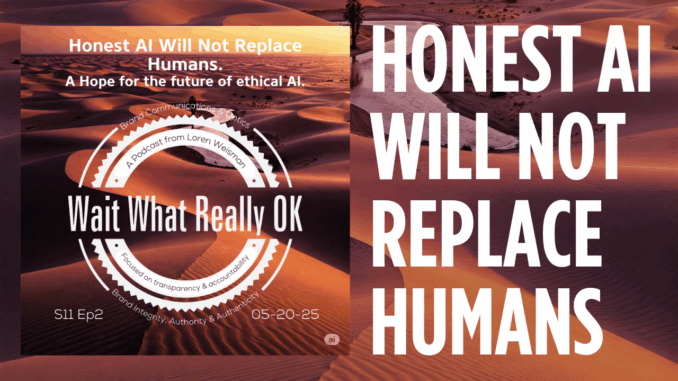
Honest AI Podcast Transcription
Honest AI Will Not Replace Humans. A hope for the future of ethical AI
Honest AI Podcast Transcription
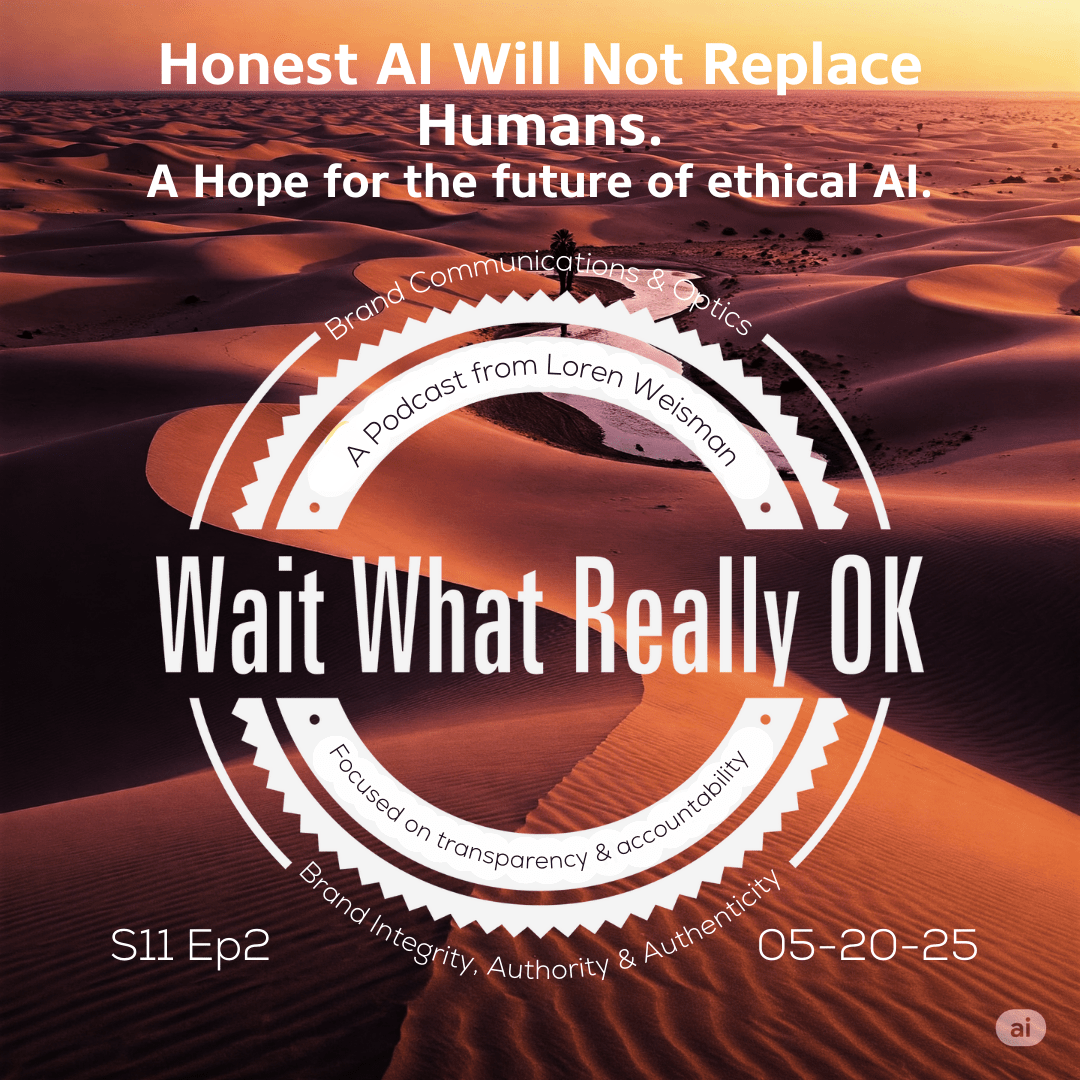
Released on May, 20th, 2025
🎙️ Tune In:
Listen to this Wait What Really Ok Podcast Episode
Honest AI Will Not Replace Humans.
A hope for the future of ethical AI
on
Apple Podcasts
Spotify
iHeart Radio
Pandora
Amazon Music
Spreaker
YouTube
and other platforms.
Honest AI Podcast Transcription Chapters
*****
Honest AI Podcast Transcription Chapters:
00:00 – Honest AI Will Not Replace Humans: Opening and Podcast Introduction
01:40 – The Hype vs. Reality of AI in Business
03:23 – Taking a Middle Ground: Not Anti-AI, Not Pro-Hype
04:26 – The Wild West of AI: Lack of Standards and Regulation
05:11 – Learning from the Music Industry
07:46 – The Consequences of No Accountability in Tech
11:49 – Five Key Points for the Future of AI
12:22 – Advanced Multimodal AI Systems
13:51 – Agentic AI and Autonomous Agents
15:04 – Quantum AI for Specialized Applications
16:41 – Industry Specific AI Applications and Fraud Detection
18:17 – Why Human Expertise Still Matters in AI-Driven Work
20:18 – Building Teams: The Value of Diverse Human Skills
21:20 – The Danger of Shortcuts and Over-Reliance on AI
22:31 – Transparency in AI Use: Authors, Experts, and Authenticity
24:54 – The Importance of Expert Oversight in AI Integration
26:27 – Accountability, Policing, and the Need for AI Standards
29:23 – Blockchain AI: Protecting Truth and Validating Claims
32:03 – Combating Fraud and Hype with Clear Documentation
34:41 – International Standards and the Future of AI Regulation
37:07 – Building Ethical AI Businesses
41:18 – Transparency Statements
42:35 – A Path Forward for Honest AI and Human Collaboration
44:17 – Closing: The Call for Ethical Action in the Age of AI
Honest AI Podcast Transcription Text
Honest AI Podcast Transcription
Song: Wait What Really OK. With your host, Loren Weisman. This is a fully licensed theme song for the show about stuff that makes you say Wait What Really OK. This is Loren Weisman.
Loren: This is Wait What Really OK, The Brand Communication and Optics podcast and today’s title is loosely or its working title is Honest AI will not Replace Human Beings over the last and you may be hearing a little bit of wind or a lot of bit of wind, but it’s a beautiful day, it’s windy, it’s a little bit overcast where I am, and it’s just this comfortable sort of summer wind in May. And it’s nice to be outside and with some things that are happening that have kept me in bed and kept me inside. I just want to be outside and I want to share this thing outside.
So the brushes of wind in the background, they may get louder, they may get softer. I spoke to Doug Fish of Fish Stewarding Group about a week ago and he had said at one point, he said, I really think that you should do a video talking about some of the future of AI and some of the thoughts that we’ve discussed together and the trends that I’ve seen and some elements about the motion of it and the right way to use it and the wrong ways to use it. And I at first was thinking just absolutely not.
My views on the way that AI is being shared right now was so much hype and so many people stating it or claiming to state what the future is going to be, or for that matter, using AI to ask what the future is going to be, and oftentimes in a very selfish sounding way, presenting it as what they want it to be in their intention or inside of their business or inside of their needs, as opposed to the motion of where it potentially can go, where it won’t, where it can’t go, and so on.
Then just yesterday I was having a great conversation with Mark Simpkins and he’s the CEO at AWS, and we went into a little bit more about AI and he said along the lines about structuring and some of the same exact things. A conversation went on for a very long time and the structure and the ideas and thoughts that I’ve had on AI for the better part of 10 years.
And as much as people say, oh, AI is new, AI is new. AI has been around for a very, very long time. Even in some of the modules and aspects, they weren’t as strong, but they were being used. And for many years, as in many decades, it’s now a lot more known it’s now a lot more accessible, it’s now being used that much more by the public, and in some ways it’s being exploited that much more. So the goal inside of this episode, I’m not going into an anti AI rant. At the same time, I’m not going into necessarily a pro rant about it either.
I’m coming from a middle standpoint, from viewing the authenticity and the options of AI, as well as how I believe authentic, authoritative businesses can apply AI and use standards that are strong, that are true to heart, true to morals, true to professionalism and true to transparency. Now, this is not so common with how the abuses of AI are taking hold and growing and growing and growing at the same time. I’m going to throw out one of my forecasts of what I see and a couple different options on that forecast because it really, right now there is no clear path on AI. It could go a number of ways.
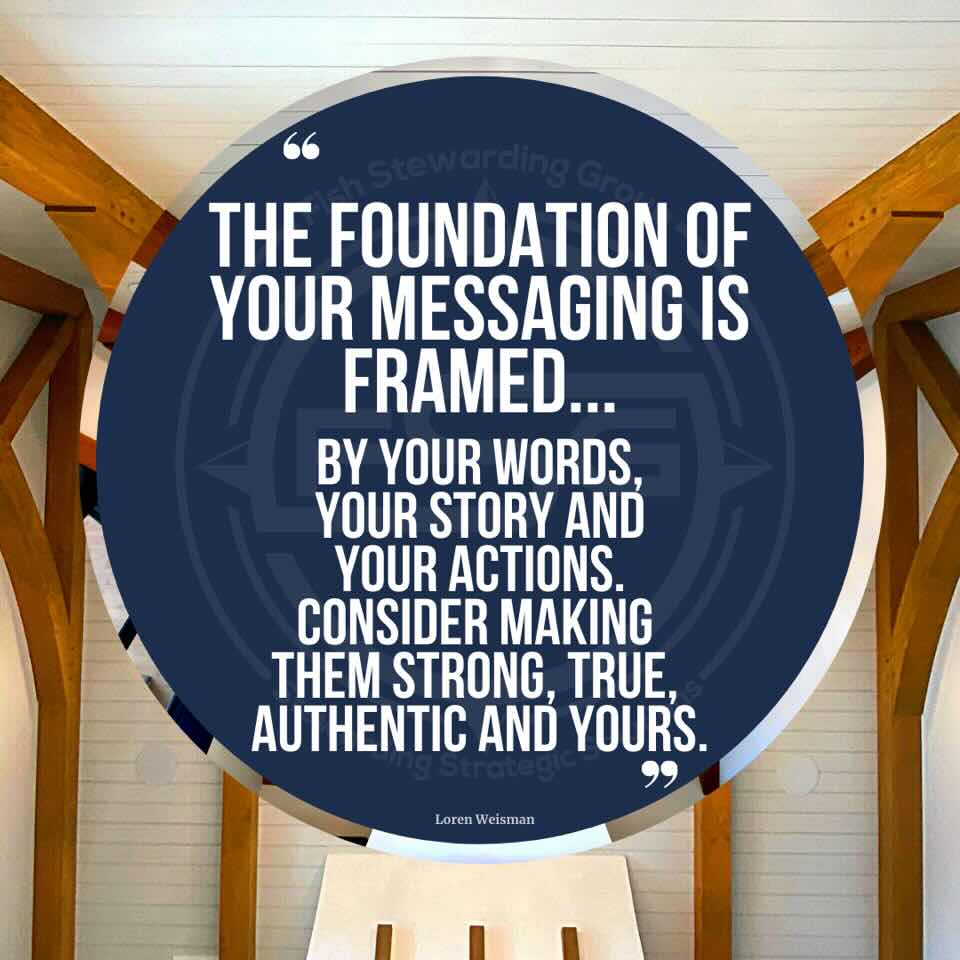
Right now it’s continuing to move forward and yes, it’s being abused already, but because of the lack of regulation, because of the lack of understanding, because of the lack of compliance, this is the wild west that’s out there right now regarding AI as is. Jump back. Let’s jump back 20, 22 years to 2003 and the wild west of what was happening around the time of digital music. I put out in a press release, when I was part of the music industry, I put out in a press release and I got pretty heavily attacked for it at the time.
My thoughts on what I saw happening with the downloads, what I saw happening when you with Napster, what I saw with the early forms of itunes, and there are many people that put many predictions. I think that if you’re going to put out a prediction, if you’re in the business world, if you believe and you can justify what you’re saying and you stand by it, put it out in a press release.
Put it in a genuine press release, not something you call a press release and put for immediate release now and some kind of crap on Twitter or X, but more so through a series of different channels so that people can find this stuff. A year, two years, five years, maybe even 10 years down the line of what you said. It’s almost this blockchain and I will reference AI and blockchain in this concept a little down the line, but it’s almost like a blockchain approach of proving and bringing the validity of what you stated and showcasing.
You genuinely stated it as opposed to being in a group of people 20 years later. Saying no, I said this was to happen. I said, oh, when and how can you prove it? Did you write it in your book? Did you put it here? Did you put it there? Can you back that up? What I said a number of years back and I said it when I was tied to a digital download company, one of ethics and one of independent considerations for artists.
I remember that release went out on. It was March 3rd of 2003, and there were a couple releases that went out just short of the release of this company and its product. And then a couple weeks afterwards, I don’t remember, I think it was the one before stating, the music industry is about to go undergo a massive change and here’s how it can potentially harm the artists. I wasn’t worried as much about Napster
Honest AI Podcast Transcription Continued:
My viewpoints on Napster and the way that was being done was, hey, we’ve had plenty of chances to set the regulation and the compliance when it comes to copyrights, when it comes to publishing, when it comes to licensing, there were for many years things were being brought up going all the way back to Motown. And even before this goes all the way back to when opera was being pressed on vinyl and people were taking over. I mean, even mobsters taking over and forming some of the initial distribution companies and making money with no consideration to authorship or who had the rights to a given piece to when something became open use, so on and so forth.
Go even back to the time when some of you may not be as old, but you go into the Chili’s or you go into the Fridays or you go into the Applebee’s. And for many, many years they had to sing their variation of Happy Birthday because they didn’t have the rights to sing Happy Birthday in their given restaurant. But this is not to get off track. But this still does kind of relate.
I said the music industry was going to have a massive nosedive when it came to profits, the understanding of profits and the distribution of profits. I estimated that in a number of years, probably about a decade, that artists would after that start selling off their entire catalogs to get whatever value that they felt. Because the royalty systems with digital downloads, with different forms of digital distribution and the issues arising with physical distribution would make it no longer worth collecting that royalty check, but more so just selling out the rights entirely. And as we’ve seen, major artists across the board have sold off their catalogs.
Money has dropped out of the bottom. People that say, oh, I get this for streaming, I get that. Some, yes, they’re making it, others, they aren’t the music industry had an opportunity. And I get that AI goes beyond music, but the music industry from a national standpoint, from an international standpoint, there was the opportunity to meet, to discuss, to plan, to organize. Even before all the digital stuff, as the digital stuff happened, as it went even.
But the lack of accountability, the lack of organization and the excess of people bitching and moaning and complaining about what was wrong as opposed to coming together to figure out how do we make it right was not being put together. We were not, you know, we as an industry, I’m not part of it anymore. We’re sitting here saying we’ve got all these great ideas how to make artists money and yet no one was coming into stating where do we set the commissions, where do we set something where we could start it on a county level, bring it to the state, bring it nationally, bring it internationally,
How do we set these standards?
How do we set these standards with distributors?
How do we police this, how do we discipline this?
Small little elements were set up. But still to this day, the music industry has become even a bigger crapshoot. If I was starting, I mean, I started in the music industry in 92, if I had to start in the music industry today, I wouldn’t have gone into it. I went into the music industry in 1992 as a drummer, seeing the opportunity, seeing in some ways a lack of opportunity and knowing that as being a drummer there was work. I don’t think I would have gone in as a guitar player. I saw the business side as much as I saw the creative side.
Honest AI Podcast Transcription Continued:
Fake Authors Using AI. Podcast Links and Transcription
Now tie this all back to AI.
We are in a similar wild west situation. This has been growing, it’s been building, it’s been building up. There’s been some jumps in the last five years, even in the last 10 years, we begin to see these companies saying they’re AI, you know, they’re creating AI modules, they’re creating AI businesses, AI consulting firms, AI this, AI that’s. And yet is it being done in a manner that truly brings a level of authentic, organic, authoritative expertise. AI has all the potential in the world to be something so incredibly strong.
At the same time, it has all the ability and has become in many circumstances something that’s absolutely evil, deceptive, plagiarizing and creating these false prophet type self proclaimed experts that claim to know everything because of a ChatGPT prompt where they’re going in and learning little ways to trick, fool and deceive audiences into paying them. That part I can’t stand.
I want to jump to the five key points I see of the future of AI, the stuff that I see happening by 2030. But at the same time a lot of questions of what’s going to happen in the next two years, in the next three and four years. I think the advanced multimodal AI systems, those are going to continue to grow now. Those are that kind of, you know, they deliver the hyper personalized experience.
This can be again a great thing subjectively. At the same time it can be incredibly dangerous. Okay, you want to for parody, you want to for leisure, you want to for fun create some picture where you’re sitting there holding hands with Taylor Swift or you’re presenting yourself, you know, or you’re presenting yourself on a, as an animation or you’re doing something of just fun, something you might send around to a couple different friends, something that you might post out there and say isn’t this funny? Something that you would put out there but you wouldn’t lie about. That’s some of that multimodal AI.
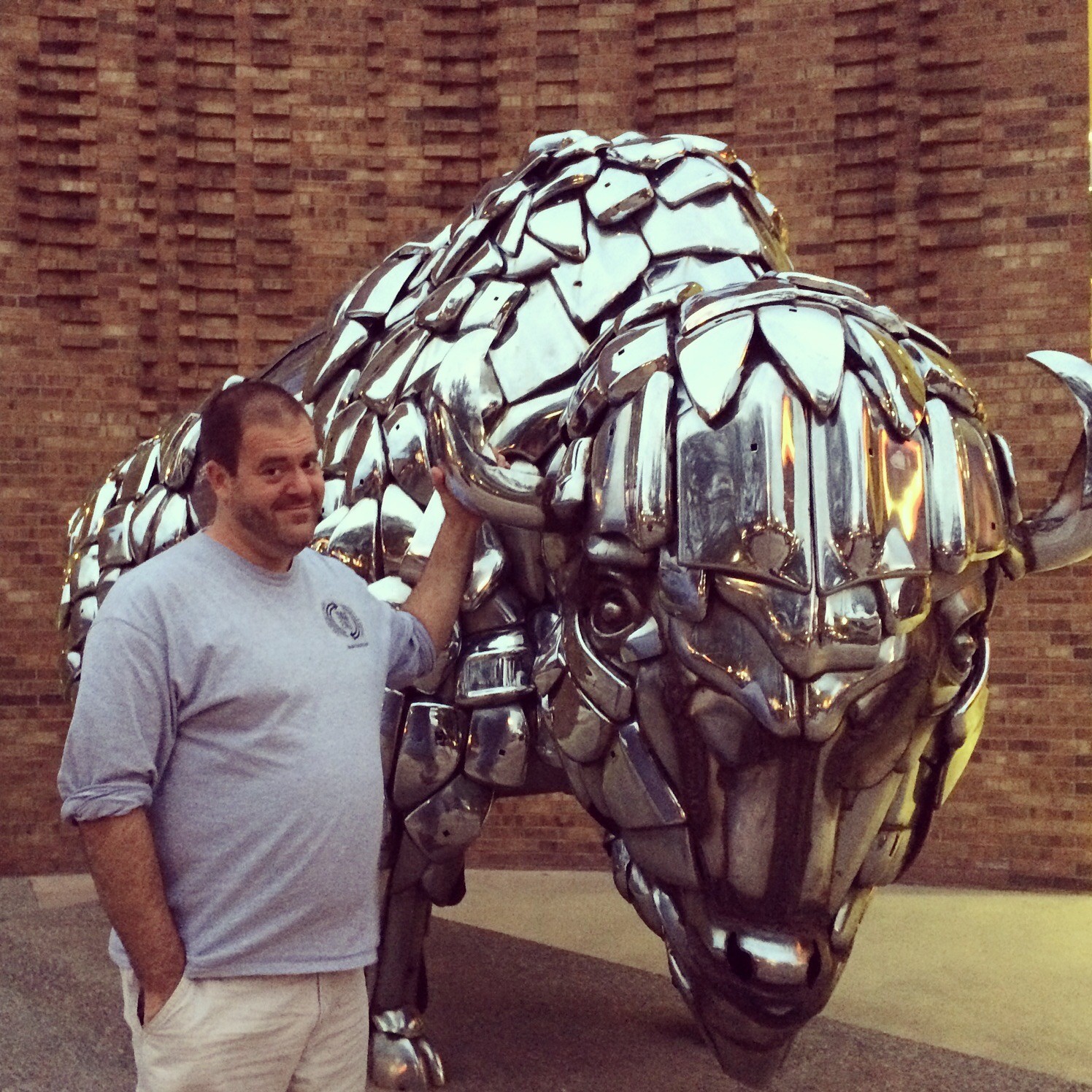
It’s these hyper personalized experiences from the audio, from the visual, even a touch of it going into broader experiences in the text, elements of what can be put together. Now the bad side of that and the bad side of some of these other ones.
Now somebody puts an image of them up on stage speaking to an audience that’s not there, claiming to be an in demand keynote speaker when the only thing that they’ve done is speak to their camera or you know, or gone to one of those local little, you know, meetup talk things where everybody gets seven minutes to speak. I have a problem with that. I have a problem with some of these AI photo generators where it’s make your headshot that much better.
Okay, so some nuancing in editing a photo, colors, lights, this and that. But when you’re really starting to overly enhance and then presenting a professional version stating this is me. Where is the line in the sand where this is deception to this is true. There’s also the…
Agentic AI and the Autonomous agents.
Those are where you’re starting to see and it’s been especially stronger in the last couple years of the personal assistants being able to come out, the therapists. What I found too, and it’s been a little bit of an issue for my field and some of the people I work with, the strategic advisors that now you can format this thing and say what would be this person?
Or give me the answers of this person, this person and this person, what they would say regarding this business. Like okay, these again are giving you Ideas. But are they giving you the right ideas? I’m going to jump back to that in a bit.
The parts of AI that I find the most exhilarating, the most innovative and the most helpful are the last three, the Quantum AI for the specialized applications. This is that complex problem solving, the stuff that can help a cryptography, material science, drug discovery. The way that you can use quantum, you know, this quantum computing in a much faster method where you’re using a series of absolute, objective, substantiated numbers, facts and information and you’re compiling that data and making it that much easier to read, to review, to organize.
How My Daughter Changed My Approach Podcast Transcription
Honest AI Podcast Transcription Continued:
This is the place where it saves hundreds of hours and many, many different researchers. You’re still going to need those researchers. And I’ll touch on that in a bit. But such a way to scan and learn in this quantum scale is absolutely amazing. And it goes into the reasoning and the frontier models where again, mathematical elements, these further out scientific elements, law.
I mean really to have all that information, all, you know, pretty much every true law case, every updated law case, everything in the books there to be able to cross reference in that way, it brings it to a new level. And lastly, the industry, specialized AI applications. And this is where I think that it needs to go with AI businesses specialized into specific areas.
One of the first ones I like the idea of, and that is growing is fraud protection, I’m sorry, fraud detection.
And that fraud detection I think should be, as this part and module grows, that it’s building as much for AI to be able to identify some of the AI characteristics.
Was this, was this just a simple prompt?
Is this person stealing from here?
How is this being done?
But also when you go into medical, when you go into finance, when you have these abilities where you could run somebody’s information, you know, their entire medical history and again, as long as they were telling the truth, being able to have all of that together and then not make a decision based on that, but then have the right doctors who receive this data, using that to come to a preliminary conclusion, preliminary assumptions, you know, this, these preliminary thoughts.
And maybe together then from that data, bringing it back into the AI module to say, okay, from what was asked, from what was gathered, from what is in the discovery, now this information has been returned with this information. These experts, these doctors, these scientists have viewed it as this, are asking about this, are concerned about this, see this as this, what are your thoughts on that? So it becomes this series, this give and take. And that to me brings authenticity and authority through the roof.
Honest AI Podcast Transcription Continued:
Now take a Step back into what I was saying before about the researchers or the strategists.
Yes, There are a whole bunch of people out there that are stating they’re business experts because they can run a check or they can run a prompt, or they can run some kind of advanced prompt, or they took one of these thousands of AI courses. And the awful thing is there’s so many people out there creating AI courses for pennies on the dollar to try to make whatever they can make, and yet they have no idea what they’re doing. And then they’re getting conclusions off of algorithmic learning.
They’re getting summaries, they’re getting answers that can be an answer from what data was captured, but they may not be asking all the right questions for the particular situation that they’re in. And their lack of expertise in analyzing that data, in knowing what questions to ask, in knowing what red flags to raise, that’s where the problem runs in.
That’s why I think that honest AI will not replace humans. I see it with a formidable, foundational, authoritative business, or even AI business, from anything from strategy to doctors to finance to fraud detection. It still includes having a core group of experts, people that have the experience, people that have the experience in the given field, that understand communication, that understand compliance, that understand the law.
Then you have the outer team, which would be the individualized group. Okay, say you were, you know, you were working, or let’s say, for that matter, I was consulting with a team on a business located in, I don’t know, we’ll say, Las Vegas, Nevada.

I’m going to step in as the communication and optics guy, the person looking at the messaging. I’m going to look at some of the comparative, the competitive, the intention of the perception, the psychology, the experiences that I’ve had in music, in tv, in many businesses around the world. I’m also going to look to people that understand business on a different, on a different note, people that understand building, people that understand exit strategies. For this particular thing, I’m going to want to bring in team people that are right inside of Las Vegas.
Are they looking investors? I’m going to want the right people to review investments. Now in that from a discovery, getting as much information together, and that’s something I’ve been doing for more than 10 years, is the initial. It’s the initial brand messaging and communication discovery.
It’s a lot of information in the beginning. And in that, from that data, we’re able to compile and come up with a plan of action or an investment plan. Or a business plan or standard operating procedures.
Now, in the same way, when it comes to AI, if you are not creating that initial discovery first before entering everything in there, you’re cutting corners and you’re getting answers that may not apply to your type of business, where your business is located, and many of the parameters of how much money do you have, how much money do you have access to, what aspect of reputation, what comes to land, what ties to real estate, what ties to so many other variables that are oftentimes not thought of.
And then you have that single little AI self proclaimed expert. He doesn’t worry about any of that. He’s just popping in. I want to build in Vegas. I want to do this, I want to do that. I need this much. Tell me how to do it. Give me a business plan. People are writing business, but people are writing books. I think that part is absolutely pathetic.
If you can’t inside of this, if you can’t state how much AI you use inside of writing a book, I think there’s a problem there. It’s fine to state, you know, maybe you put on the back. I used AI to help me proofread. I used AI as a technical editor. I used AI to do this. These are the kind of things, and I believe authentic, true authors putting that out there can help stand out, whether they’re choosing to go to a major publisher, a hybrid, or even self publish against some of these awful. And I can’t believe that they’re allowed to continue to advertise online.
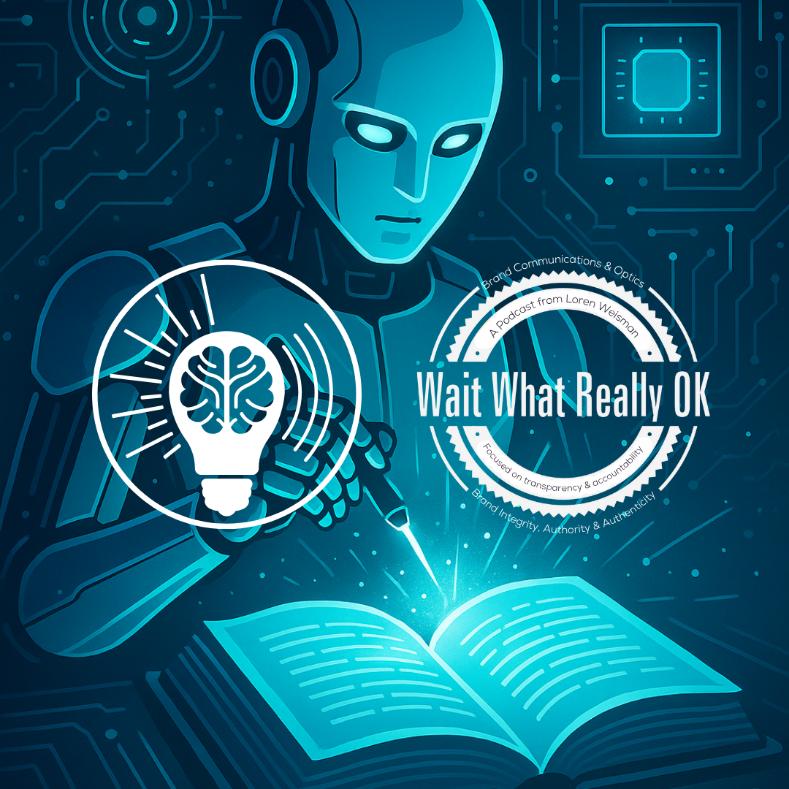
But that’s the state where we are, that’s the state that we’re in. All you have to do is come up with these 15 prompts and AI will write a book for you. And then you can say you have a book and you’ll look like an expert, you’ll look like a plagiarist.
And yet that stuff is out there, advertised. Have you noticed so many of the ads out there or appear as an expert even in some ways, some of these AI fraud companies and realize they can’t make you an expert, but they can make you appear as one. I believe we have to admit we have to be transparent in what we use AI for, in how we use it, and in that transparency, in that authenticity we can draw. It’s not going to be everyone because there are a lot of people that want a shortcut.
There’s a lot of people that don’t care. They want to do whatever they’re going to do to make their money to grab that client and have no concern whatsoever they’re putting into the little legal elements. How do I create this contract so that if it all falls apart, they can’t come back and sue me? As opposed to, why don’t you work on your expertise so that you’re not going to screw them?
I mean, of course you want an aspect of not being held liable for what a client may have done, but it goes too far now. I mean, my thought about where this can go when you have an AI organization or organization that uses AI in this authentic way is that it’s going to be amplified and furthered with true human expertise. You know, you look at some of these organizations and like this is a top notch organization. There was a given, a higher level consulting firm that has been, has been saying, you know, we use AI and they’ve stepped away from sharing though the expertise, which I don’t understand.
They step away from sharing the expertise of these individuals, the experts that are around them. It’s not just using AI. The cornerstone of all of this, the foundation of all of this to me is the expertise using AI. Because as AI grows from an authentic, from a transparent, from an authoritative standpoint to truly steward, to truly grow in some of these areas that are not as clearly objective, where it’s, you know, too many different parameters, you’re going to need the experts that are going to have to know how to ask, how to look.
Some of these law firms right now that are getting sued because some of the paralegals are cutting quarters, not researching, not looking through, they’re asking the wrong questions into AI prompts, getting back simplified answers, giving that to the partners or the attorneys. And unfortunately then the attorneys are using that saying, okay, well they did the work, they found it, they’re quoting where this is, okay, great, let’s go. And they’re getting in trouble, they’re even getting fined.
I believe this is a good thing.
Twelve One Minute Messages from Loren Weisman and FSG
Honest AI Podcast Transcription Continued:
And it’s one of the steps I’d like to see with AI. I’d like to see an accountability, I like to see an element of discipline, of fines and for lack of a better word, policing. Because if that’s not in place, then the crazy side of AI just gets crazier. I know that there’s no way presently, and even if some of this stuff comes into play, that you’re ever going to be able to stop the fraud.
The frauds have been there forever and they’re going to pull their games and they’re going to create things and they’re going to screw people over. That’s going to continue. But we can set a standard for those that are prepared to look a little bit deeper, for those that care about their businesses, for those that care about their information to set in place.
Say, Here’s how we operate.
Here’s how we operate with AI.
Here’s our AI Statement of use.
This stuff can go up on websites.
This stuff can go to companies.
This could be an internal thing stating back to, you know, stating back to that paralegal that, you know, they come in, or even. Or even a lawyer if you use this stuff and you have not checked those links. And it’s. It’s funny because sometimes AI will send you back links, you know, in a given prompt, and it’s dead. It’s not true. And it’s not that AI is trying to fool you, but are you asking the right questions? Are you vetting the materials that you’re coming back to see if that’s information that can be compiled correctly, or are you just taking it at face value because it’s AI? I’ve done some, you know, some people say, google yourself, you know, AI yourself, ask some really broad questions.
According to AI, I’ve done a lot more albums than I actually did, and it’s absolutely not true. I know how many albums I did. Now, there are articles out there from magazines, from stuff of when I was in music that have stated higher numbers that were not true. They weren’t shared by me, but they were put out there. And yet that was where some of the scrape came from. Now, one of these articles, as it came through, boom, it goes up. It’s viewed as this. It’s compiled here. Now it states X. But it’s not true. AI doesn’t know that.
When we compile information, if we’re not vetting it, we’re not honoring the opportunities of how great this research can be.
We’ve got to test this. I mean, even. Even having peer reviews inside of AI, I don’t think is a bad thing. So in that, I mean, in that clarity, that to me, is stronger. Now, coming back to what was said before, I don’t know what can be done about the lying elements. It is frightening. The videos that can be made, the images that can be made, the things that can be said. And in that, it’s got to be. It’s got to be something where your defense is not coming off defensive.
There’s a letter, a letter I’m putting out. It’s on a private matter. And I’ve thought about it going like, wow, how could that get twisted? How could that get blown around? How could that get messed up? So the letter is going out as. It’s an audio letter.

It started as an audio and the audio is being placed in one area and in a file. It’s also transcribed on a back page of my website. That is not optimized. It’s a, it’s accessible. Not, not like, not, not like password secured, but you’ve got to have the right link to find it. And it’s also printed out having certain elements like this to potentially prove that if someone was to take something proprietary of yours and slightly adjust it and then claim that that might be a step that we may need to take.
That might be a step in secure documentation and proof down the line at the same time with major things that you’re putting out there. Maybe it’s making sure you’re putting it out there in major places. Returning to that point, this point being blockchain. I am a big fan of the blockchain.
Not, not the cryptocurrency aspect. It’s much more so the blockchain.
I believe that with, with information that is not just on one given server right over here, but it’s found and dated and clarified that it shows up on all these servers and all these different places. And then at the same time with the blockchain security, some is, some have advanced to this, some it’s still waiting to where somebody makes a change and then something is pinged going, no, that’s not right.
Because here’s 30,000 other servers, computers, whatnot, stating X.
And it was dated to, you know, June 2, 2023. And all of a sudden something’s been put out and it’s that exact document. But now it’s had some massive changes and these are wrong changes that, hey, this came a year later and this has been edited, this has been adjusted, this is off, here’s the original. I think that that’s a great level of protection. We’re looking at some of these places that are dealing in real estate holdings overseas in certain not as strong countries where people have contracts for land, for homes, for businesses. And you have people that go in and say, okay, we’re going to take these things over. We’re going to burn down a bank, we’re going to burn down a building. We’re going to make sure to shred these given contracts because there aren’t really copies of them. On the smallest level internationally, that could be of assistance of going, okay, this goes away.
At least it’s located elsewhere.
But on the largest level it’s not just elsewhere, it’s so many different places. How can we begin to use aspects of AI and amplify the authenticity and the authority of an individual? What they wrote, what they found, when they found it, and that being backed up enough so that it’s in tens of thousands of places and then add on to that the security parameters that when somebody puts that up.
Here’s your plagiarism detector or here’s your alteration detector.
This study was putting out, I mean these third party studies and like you know, a couple years ago I was speaking at the Miami, it was a Miami Cannabis Expo, it was for CBD. And I stood up in front of a crowd and I said, you know the number one problem with this industry right now, it’s not the people, it’s not, it’s not the distributors, it’s not the sales system, it’s not the government. I said it’s you. It’s you people that are trying to falsify, trying to hype and trying to shortcut these people saying oh we have this great third party tester and that third party tester ends up being a lab that they own that they’ve just structured under a different business. But accidentally it ties back to their business.
These elements where people just shortcut for hype. It doesn’t help them. But when we come to this clarity, we come to this vetting. I’d love to see inside of whether it’s the quantum modules or, or you know, getting, getting back to the advanced multimodal and, and these elements of fraud detection where things that are coming up where it’s the, you know, not, not just the response of the community notes of well this is this. And somebody found one other thing to object it and then all of a sudden they’re changing it.
I don’t want you to find one other thing to object it.
It could be subjective. I want you to find 30,000.
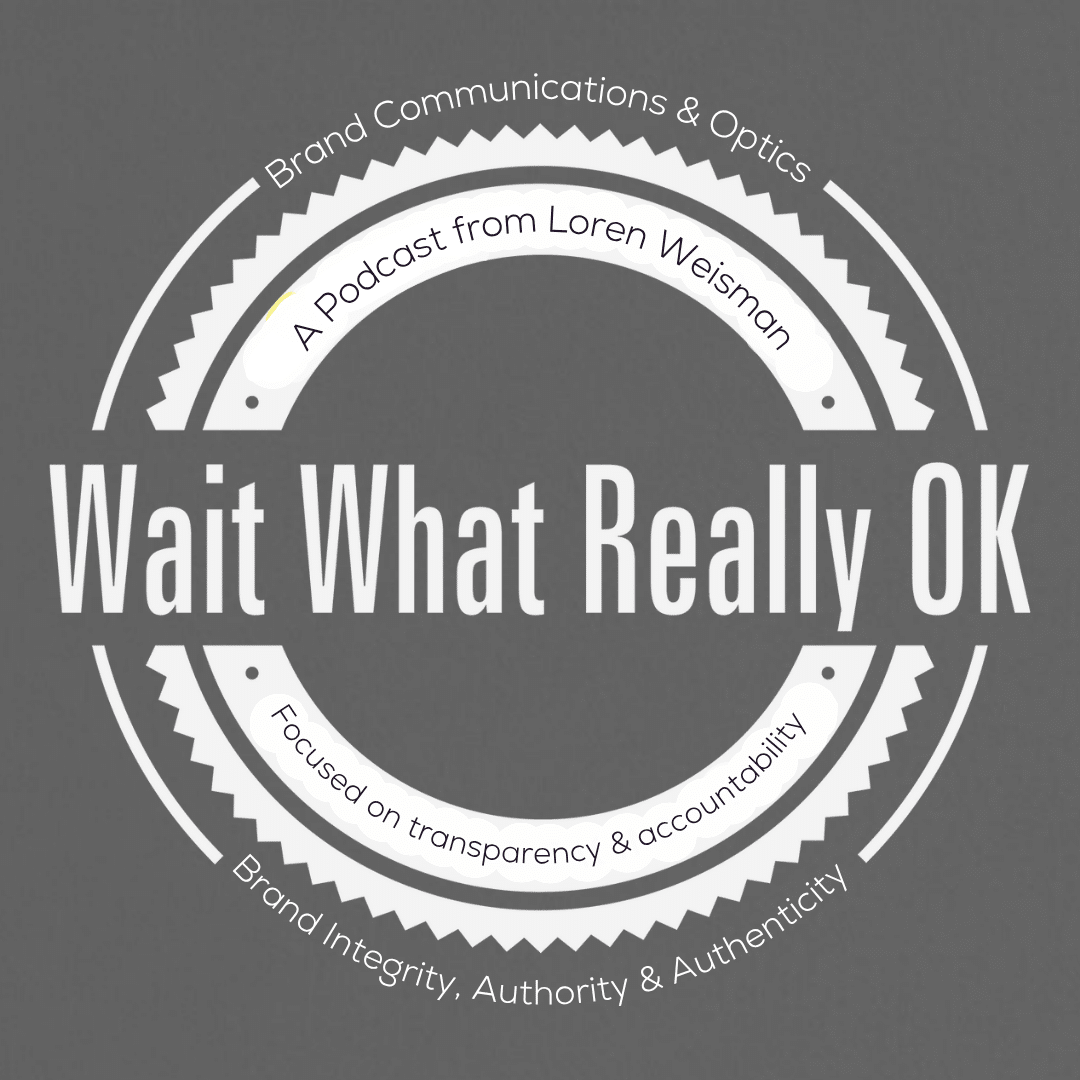
Click down here to see the backed up documentation of what is there now. Of course things can change. Study, you know, new things can be learned. But who’s making those changes? That’s one thing. And that can be an edit on the other side of it.
Honest AI Podcast Transcription Continued:
Is someone trying to abuse this, okay, the pill that’s Hard for some people to swallow. And kind of coming around the last couple laps here is the policing. I’ve talked to a lot of people inside of AI or that are interested in AI and they’re like, I don’t want the policing, I don’t want the government policing. I don’t want people, you know, saying this. I don’t think somebody should be fined.
I think you’re wrong. And here’s why I think you’re wrong. I think that without that policing, without that accountability, without the liability, without the discipline, it leaves us to be the wild west, just like it was in music, but on a much bigger scale and affecting many, many more people.
I’d like to see on, you know, on a state, on a state level, on a national level, and even on an international level, whether it be some kind of board, commissions, councils, getting something set up in stating, here are the parameters that we’re going to look toward and not something that’s going to take, you know, five years to build something of. Okay, here is our initial committee, Here is what we’re going to grow it into. Here is where we’re going to vote into these elements.
Here’s what we’re going to come to agree on when it comes to AI and then setting this, is setting certain standards on an international level. And that if there’s certain countries that don’t necessarily comply with that, that, okay, you’re using this module, you’re using this, you don’t know that this is absolutely safe. It’s come to a time that if we’re not taking that step to have some kind of discipline, to have some kind of, for that matter, punishment for doing wrong, then they’re just going to keep taking advantage.
And the people that are doing right, I believe, should be rewarded. Here’s a, you know, here’s this, here’s their AI statement of use. Here’s how they’re doing that, here’s how they’re backing up, here’s how they’re walking through what they build, how they build it, how they prompt the experts that look at this, here’s our process, here are the experts that look at the data with expert eyes and have the expertise to go back and revamp the prompt or use that information in the best way for whatever given industry, that to me, becomes so much stronger. That’s your AI. To me, that’s your AI ethical business.
It’s building businesses with the right people and the right teams for the best data. And the only way that you’re going to get the A optimal effect of AI as it continues to grow into these new modules, into this expanded element are going to be by having those people that know how to ask the right questions and not just taking these AI things of, you know, take my 90 day AI course, you’re going to learn all these different prompts and all these words to use and all these things not to, and here’s how you apply it. And then you can launch your business in 90 days and you’re up and running.
No, the differentiator there inside of whatever the market is, whatever the trade is, that you have the right people doing the discovery first, that it’s AI based research that still can also be mixed and vetted with actual research too that sets for a discovery that gets the baseline information about a new thing, re establishing an old one, whatever from all that data.
Then to be able to say, okay,
What are you trying to do?
What are you trying to accomplish?
Where do you take this from?
You know, to this next step. And from the data that comes back going to the expert or I’m sorry, the experts again that run through that data, that strategically look at that, these supposed strategic consultants, they’re popularized answers that don’t always relate.
And it’s something that I’ve even seen, you know, a tick down in people going, oh no, I don’t need your help. I’m, you know, I’m using AI and of the people that have gone that route, I’ve watched a lot of mistakes being made that’s in the, you know, the, the agentic AI, the, the autonomous agents. Oh, if you just ask the right questions and here, and here’s a whole bunch of questions you can ask.
Messaging and Optics Podcast Wait What Really OK
Honest AI Podcast Transcription Continued:
Yes, but you don’t know or have the experience that I have to ask the questions to ask a wide array of here. Oh, and you can even ask in there. You can ask for someone like me, someone like another expert that you like, some larger scale name. But what do you find? Are you only getting some major popular answer that doesn’t relate to you? Okay, it’s a high level answer. It’s been found in a couple different places under a couple different examples. But still it’s popularity response over authority response. It’s an impersonalized response. So I know I’ve kind of gone a little bit, a little bit all around the map here when it comes to AI.
To summarize it up a little bit as best I can.
To me, the most effective business model and some of the most effective businesses for AI are still going to at the root of them have to have experts. And for these people that are doing their little 90 day AI courses and prompting off of what they think and not having the humility or the understanding that they may not be getting the type of data that they, they might get the base data and they might get popular data, but it might not be personalized or applicable or really, for that matter, professional data that applies to whoever they got to hire them.
That if you’re going to start some kind of AI business like this, and even if you want to start one of these, that you’re bringing in the experts to review this, that you’re looking at the questions, that you’re taking every experience inside of AI and not trying to put it into a template, simplified system. The exciting part about AI to me is that it will continue to grow to collect data and information.
How that data is collected and that information is formatted is crucial.
And the laws and the regulations that step in, that’s even more crucial to ensure that something is designated as, okay, this is an opinion, this is a fact. Here’s where it’s backed up here, here’s where it’s backed up there. The elements of getting into the fraud detection, the elements of these blockchain like elements of stating, this is found in this many places. This was adjusted, this was adapted for someone to put out certain stuff that it has to tie back to them. And then lastly to the individual’s responsibility or the company’s responsibility to state, this is how I use AI and this is how I don’t use AI.
This is where I apply things, this is where I don’t apply things, this is where I set the standard, I believe that that should be laid out. So even regardless if you’re parody, if you’re just doing it for fun, that it’s clearly stating there. And some of these AI, you know, the graphic things, these modules, where it’s clearly stating, okay, you threw a couple words, you know the music ones. You threw a couple words in and you create.
And a song was created off of a couple words and a couple chords. Are you really going around saying, I wrote this for you, or can you be a little bit more honest and say, I used this thing and it helped me create this for you together. In our honesty, in our authority, in our integrity, in our transparency, AI has an opportunity to be something so amazing, just as it has the opportunity to be something so incredibly dangerous.
And while AI to a certain extent, and these personal assistants and strategists and whatnot, these fake things that are just compiling off of different information can be dangerous. I still believe the honest use of AI will not replace the human beings and that we may end up seeing in these next couple years. In this surge right now of people claiming to know things they don’t know is businesses that end up falling apart because of bad decisions made based on bad information or partial information or incomplete information or information that was not vetted and checked by experts.
If we take AI to these next levels with ethics, with transparency, with regulation and policing, I believe we can get amazing things from it. Amazing new businesses, things that can be formed faster, quicker, more affordably and also correctly.
But in that it might not be as. I mean, and in the affordability, it might not be as cheap because it might still take more than one guy, you know, plugging away prompts at his computer. I know this is a little bit of a ramble and a rant, but I think this is an important thing. I think this is going to be a topic that is going to be on minds for the next number of years to come.
I think that it’s important that we begin to take these steps to get these committees into play to figure out, you know, who’s going to set the regulations, that it’s not another situation where just let whatever’s going to happen happen, because it’s already dangerous, it’s already impacting people. We can do better as this new and better technology continues to grow.
And if we do better,
if we do honorably,
and if we treat this in love, in honesty and transparency,
I believe AI can be something
so much greater,
so much bigger,
but still stand
in a foundation of truth and authority.
This is Loren Weisman. This was a long one, a bit of a rant. That’s all I got.



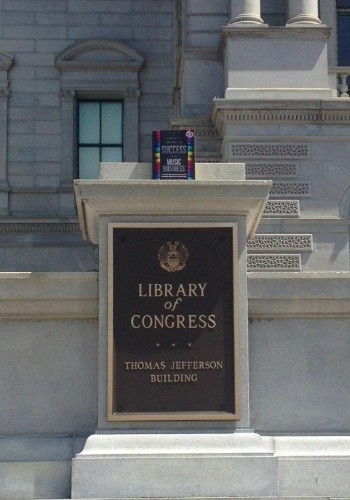
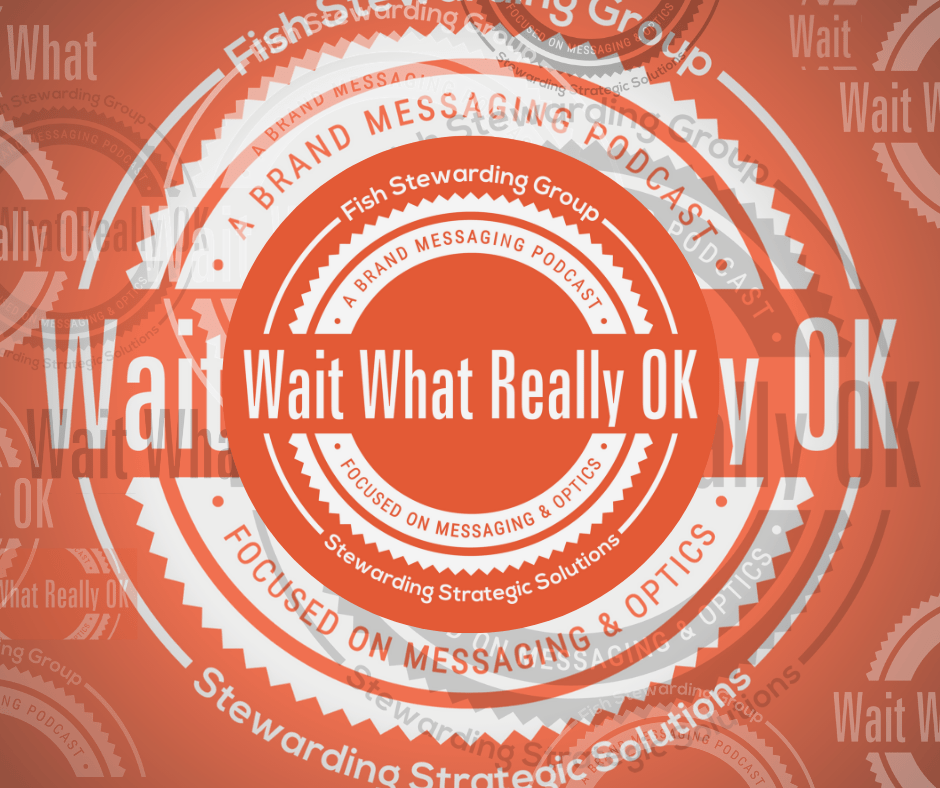
Leave a Reply